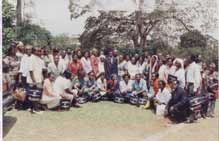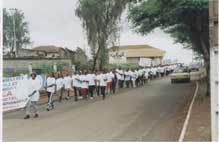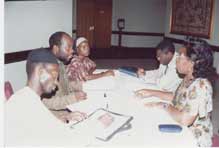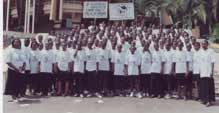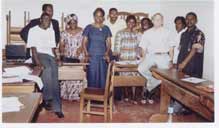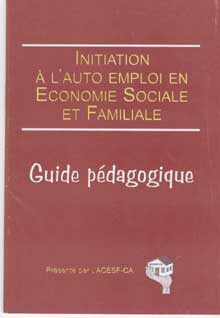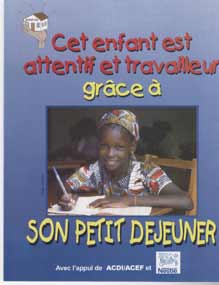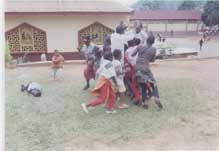C.A.C.H.E. (A.C.E.S.F – CA)
Is the Cameroon Association of Counsellors in Home Economics. It is a non-political and non-profit making professional organization created on 5 May 1992. It brings together holders of Home Economics certificates at all levels (CAM, CAP, “Probatoire de BT”, HND, Bachelors, Masters…)
Our Mission :
- to promote home economics;
- to help its members attain high skills level with regard to home economics;
- to assist in the well-being of individuals and families especially the poor and vulnerable.
Composition :
- a General Assembly made up of 271 members;
- a Board of Directors made up of five (5) members;
- six regional branches supervised by Delegates;
- a number of focus points which ensure liaison and relay of activities;
- committees or work groups which study, reflect and research on topical issues.
Work methods:
- sensitization;
- communication;
- training;
- research and action;
- consultancy;
- networking;
- improving education manuals.
The Beneficiaries:
- Direct: Professionals of Home Economics;
- Indirect: Individuals, groups and families.
Our Partners:
- Finnish Home Economics Association (Martat);
- International Federation for Home Economics (IFHE);
- IFHE African Conference;
- Lycée Jeanne d’Arc of Rennes in France;
- Cégeps Edouard-Montpetit and Trois Rivières in Canada;
- CETI Benigna of Etoudi ;
- « Club des Jeunes Aveugles Réhabilités » of Cameroon (CJARC);
- The « Association Angalè pour le commerce équitable » in Canada;
- The « Association Générale des Intervenants Retraités » (AGIR) in France;
- The Canadian Home Economics Association (ACEF);
- The “Service d’Assistance Canadienne aux Organismes” (SACO);
- The Government (MINESEC, MINJEUN, MINPROFF, MINAS, MINETFOP…)
Our projects
CACHE (ACESF-CA) has executed six projects:
- Poor women’s right to income and food security project in Cameroon, 2012 –
This project is executed in Bamenda, Yaounde and Maroua, with the support of the Finnish Home Economics Association (Martat). It has two main objectives: (i) improve healthcare of underprivileged women and their families through the boosting of knowledge and skills as regards good nutritional habits; (ii) enable underprivileged women to proactively shape their own future and increase their income through self employment.
- Learning how to undertake, 2006-2011.
This project aims at improving socioeconomic integration of youths by developing, for the Cameroon school system, a training programme in entrepreneurship through: (i) training of teachers on the basics in entrepreneurship; (ii) including a course on entrepreneurship in the fields of Home Economics and Clothing; (iii) increase employment in this sector through a pedagogic approach whereby courses shall be focused on learning skills and techniques of creativity, employability and entrepreneuriability, which are vital in vocational training. This project was executed in a three-party partnership with CETI Benigna of Etoudi, Collège Édouard-Montpetit/Cégep de Trois-Rivières of Canada and CACHE (ACESF-CA).
- Gender integration project in home economics teaching in Cameroon, 2004-2006.
The association had three main activities within the framework of this project: (i) analysis of gender sensitive elements in school home economic manuals with proposals on gender related elements to be included; (ii) strenghten capacity of members of CACHE (ACESF-CA), teachers and pedagogic inspectors as concerns gender related elements; (iii) Advocacy to education sector officials to effectively integrate gender related elements in school manuals. The project was executed with the support of the Gender and Development Fund (GeD) of the Canadian Cooperation Assistance Office (BACC).
|
|

